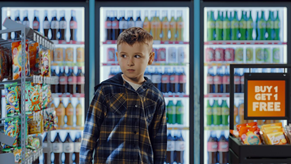Food poisoning risks with raw milk
Raw milk can contain food poisoning bacteria so vulnerable people should not drink it.
Raw and pasteurised milk
Raw milk is milk straight from the cow to the bottle or fridge without the food safety step of pasteurisation. So vulnerable people and young children should not drink it, and we advise everyone to boil it before drinking raw milk. It is legal to sell raw milk on the island of Ireland.
Pasteurised milk is milk heated to a specific temperature and then cooled quickly. This kills harmful bacteria and makes the milk safe to drink.
Health risks with raw milk
There is no scientific evidence to support claims that raw milk is healthier than pasteurised milk or that it helps with allergies.
What science does show is raw or pasteurised milk can contain harmful bacteria such as:
These bacteria can make people seriously ill. Here’s more information on food poisoning symptoms.
Infection with E. coli (STEC) can lead to a serious health condition called haemolytic uraemic syndrome which affects the kidneys and can be life-threatening.
It is not possible to tell if raw milk is contaminated. It can look, smell and taste completely normal.
Who is most at risk?
Anyone can get sick from drinking raw milk, but certain groups are particularly vulnerable:
- Infants and young children
- Pregnant women
- Older adults
- People who are unwell or have long-term illnesses
Recent cases show that for these groups, illness caused by food poisoning bacteria in raw milk can be very severe.
Our advice is that vulnerable groups should not drink raw milk, and people who choose to drink raw milk should boil it first.




